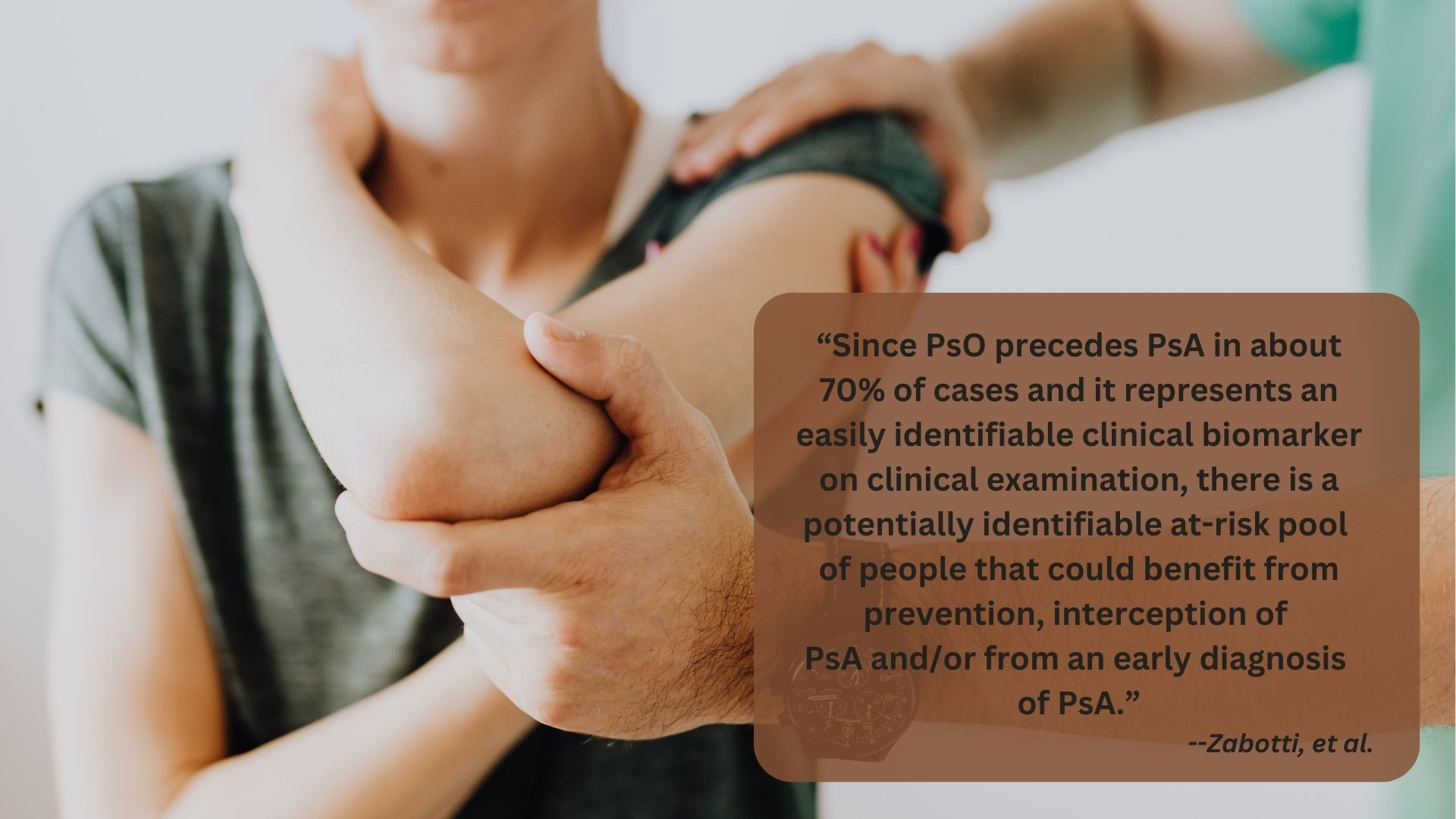Kristine Kucera, PA-C, MPAS, DHS
Psoriatic Arthritis (PsA) affects up to one third of people with psoriasis (PsO). Evidence indicates that diagnosis of PsO may precede the diagnosis of PsA by up to a decade. Currently, most cases of PsA are diagnosed based on the manifestation of imaging abnormalities and arthralgia, suggesting that joint damage is already underway.
A study recently published sought to create data-driven guidelines for clinical practice and clinical trials with the aim of preventing or intercepting PsA earlier in the disease process. This would hopefully reduce the occurrence and extent of joint damage. The research team examined factors linked with PsA development in people with psoriasis and used the EULAR (European Alliance of Associations for Rheumatology) methodology, including systematic literature reviews. The findings showed several risk factors may indicate a higher likelihood of developing psoriatic arthritis, including a family history of the condition, the presence of nail psoriasis, certain patterns of psoriasis on the skin, and elevated levels of certain biomarkers in the blood. This is particularly pertinent for dermatology providers as we screen our psoriasis patients for joint disease. We should be screening for joint disease in every patient with psoriatic skin disease at every encounter.
The article, now available online, calls out three subsets of patients to be aware of:
- Patients with psoriasis at higher risk of PsA
- Patients with subclinical PsA with clinical PsO
- Patients with clinical PsA.
This publication emphasizes the need for healthcare professionals to be vigilant in assessing these risk factors and conduct appropriate evaluations to identify patients with psoriatic disease who are at risk for joint disease and who may benefit from early intervention. Early diagnosis can help prevent or mitigate joint damage and improve long-term outcomes for patients.
Kristine Kucera, PA-C, MPAS, DHS, is Assistant Clinical Professor, University of Texas Southwestern, Medical Center PA Program, Dallas, TX. She is a member of the DEF Advisory Council.
Reference:
https://ard.bmj.com/content/early/2023/06/09/ard-2023-224148

